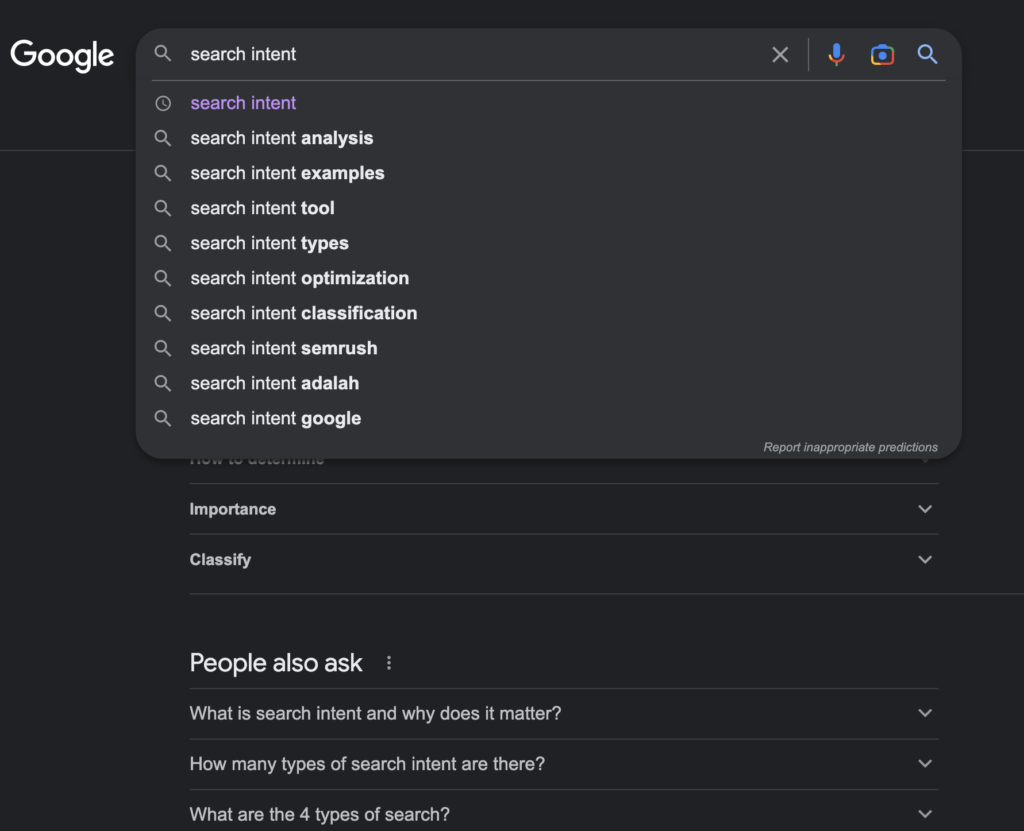This blog will explore the 12 steps one can follow to improve their search result spot.
As you read this, someone is searching for a product, service, answers to their questions etc. What is the possibility that they will end up landing on your website seeking what they are looking for? The possibility of that is high only if your website ends up being at the top 3 spots of the Google search results. To know why, keep reading further.
Firstly, the search engine market is dominated by Google with more than 85% of global traffic Secondly, 75% of internet users never go beyond the very first page of results. Now those 34.36% that click on the first search result, makes it evident why search engine optimization (SEO) is so important.
One also needs to consider the experiences of visitors to their site and then optimise the content in order to get the desired results.
Let’s take a closer look at various factors required to consider for an improved Keywords ranking-
Contents
1. Measuring Your Rankings
The first step to start with, is measuring your rankings. In order to have a solid understanding of your foundation Keyword performance, it is important to measure your rankings.
In order to do that, export the keyword data from Google Search Console and landing page traffic from Google Analytics.
Analysing this data will explain:
- Your most valuable keywords/landing pages.
- The most immediate opportunities for improvement.
- The underperforming Keywords/landing pages.
2. Targeting The Right Keywords
To ensure your keywords are targeting right, you need to make sure that your brand’s objectives are in alignment with them. Easiest way to achieve the most appropriate target is by asking yourself the intent behind your brand.
After acknowledging the intent, it is time to do the SERP analysis. Look for what is currently ranking in the top search result for your core keyword targets including:
- Related searches.
- People also ask.
- Google autocomplete suggestions.
- Other advanced search features.

Knowing what is needed to rank for a particular keyword will help you draw conclusions about what content development efforts will be required, as well as come up with a plan for creation.
Cross-referencing your organic keyword research with paid advertising data can also help discover new opportunities and fill voids.
3. Cleaning Up Your Site Structure
Your website structure defines the health of your SEO. Resolving any technical issues that may diminish your organic keyword visibility is crucial to a healthy Site structure. Site pages should be both easily accessible and navigated by users and search engines. In other cases, your keyword rankings are likely to be negatively impacted and vice versa. Additionally, fix any broken links, and resolve any duplicate content issues and technical issues.
4. Pay Attention To User Experience Signals
User experience and brand equity are crucial to having organic traffic driven to your website.
User experience needs to sink-in with the SEO for a better result.
You need to make sure that the visitors are interacting with your website by regularly analysing your website. Another important factor you need to consider is your site’s response.
If your website is not responsive, your bounce rate will be higher, which in turn will negatively affect your ranking.
Here are some other elements to improve SEO:
- Keyword research: Ensure that you are targeting keywords that have the right search intent and are aligned with the vocabulary that your target audiences use.
- Page tagging: Make sure that the page tagging encourages more clicks to your website (title tags, meta descriptions, and main headings).
- Content optimisation: Keep users hooked on your page by providing them with another logical destination. This includes everything from the navigation to the copy, internal cross-linking, and calls-to-action on your website.
- Page speed: Offer users the content they are requesting quickly and seamlessly across devices. This can be achieved by having Compressed images, mobile-friendly, clean code, and a good server’s speed.
5. Engaging Titles
One cannot emphasise enough on the fact that how much a title tag is important in defining your website’s SEO. Not only because it’s an SEO best practice, but also because it is the first text any user will see in their search results.
The title tag is your biggest opportunity to catch the eyes of a user and further encourage them to click into that page. Dictate the page that you want to rank for each keyword target, and then write your engaging title which would stand out from all the rest.
Please note that the keyword target must be included in the beginning of the title tag. Additionally, align meta tags with your title to add impact to your rankings.
The objective of your title tag and meta description is to explain the benefit to users and trigger engagement – all while adhering to SEO best practices.
To get more such content download Mezink!

can i buy amoxicillin over the counter AmoxStar amoxicillin buy no prescription
buy cipro online canada ciprofloxacin generic ciprofloxacin 500 mg tablet price